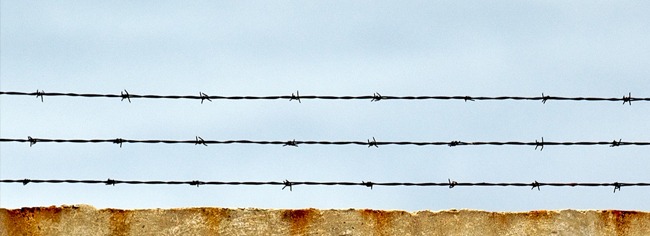How to be More Productive Online – 5 Proven Tips
The Internet gives us unprecedented power to produce, but it simultaneously offers unprecedented opportunity to distract ourselves.
Slip into the bottomless abyss of email, StumbleUpon, YouTube, and your myriad social feeds… and you may as well throw your goals for the day out the window.
But if you’re able to discipline yourself, harness the Internet’s power, and get things done efficiently, then you unlock more time for your hobbies, your loved ones, and your passions.
The secret to being more productive online isn’t much of a secret at all: it starts and ends with focus and discipline. But here are five proven ways to make this focus and discipline much easier to obtain.
#1 Take a Look at Your Web History
Do you really know how you spend – and waste – your time online?
Pull up your browsing history (press Ctrl + h) right now. You may be surprised. My guess is that your history reveals that you’re visiting certain pages too frequently and that you’re staying on some distracting websites more often than you expect.
When you check your email, your website stats, or Facebook, you probably think, “It will only take a minute.” But when Microsoft studied their employees work habits, they found that it took their workers 15 minutes on average to return to the task at hand after responding to an incoming email or instant message. So while little distractions don’t take long by themselves, they often send you on time-consuming tangents.
As you scroll through your browsing history, you’ll start to recognize these patterns and identify your personal trouble sites. The first step to solving a problem is understanding it.
#2 Develop Barriers to Distraction
How easy is it for you to go from ‘hard at work’ to ‘hardly working’? Two, maybe three clicks?
Launching an unproductive website is likely so effortless, you can do it without conscious thought. The solution is to set up barriers that make it deliberate decision every time you access a distracting website.
It can be as simple as automatically logging out of your online accounts (e.g. Gmail, Facebook, Twitter). That way, the next time you go to site you’ll be greeted with a log-in screen, which will give you just enough time to pause and ask yourself, “Should I really be spending time here?”
If that’s not enough of a barrier for you, there are plugins that block distracting sites altogether for Chrome, Firefox, and Safari.
If software is your big distraction, consider removing shortcuts to these programs on your desktop and menu bars. Make it so the only way to access the offending software is by navigating a series of folders.
We tend to follow the path of least resistance. When you set up barriers to accessing your biggest distractions, you’re naturally going to access them less frequently.
#3 Improve Your Interface
Just as you can increase the barriers to distractions, you can reduce the barriers to productivity. Improve your work interface and you’ll soon be getting more done in less time.
Use a Second Monitor
Another Microsoft study showed that a large screen display increases a person’s productivity while working on the computer. A second screen is especially helpful if you’re a designer, web developer, content manager, or anyone else who uses a lot of screen space in their work.
Use a Mouse
If you’re using your laptop’s touchpad to navigate around, then you’re being inefficient. I recommend picking up a wireless usb mouse.
Learn Keyboard Shortcuts
Keyboard shortcuts allow you to navigate even faster than a mouse because you don’t need to lift your fingers up from the keyboard.
The shortcuts I use most often are Alt + Tab, which allows you to cycle through all open programs, and Ctrl + Tab, which allows you to cycle through the tabs of your web browser (holding Shift cycles in reverse).
Together, those two shortcuts help me cruise seamlessly from research to writing, but they’re just scratching the shortcut surface. If you want to learn more keyboard shortcuts, you can find a full list of keyboard shortcuts for Macs, PCs, Browsers, and Gmail.
#4 Apply Parkinson’s Law
As a freelancer and entrepreneur, my weekly workload varies greatly.
Some weeks I’ll be extremely busy and I’ll only have a day to write an article for Income Diary. Other weeks, I’ll have very little on my plate and I’ll be able to work on an article for three or four days.
Even though the task is exactly the same, I find that it takes me longer to write an article when I have plenty of time to do it then than when I have only one day.
This is Parkinson’s Law at work:
“Work expands so as to fill the time available for its completion.”
Cyril Northcote Parkinson
If you notice this tendency in yourself, then you’re probably wondering how you can use Parkinson’s Law to your advantage.
Set Reasonable Expectations
The key to taking advantage of Parkinson’s Law is to give yourself less time to complete your work and therefore get it done more quickly.
Obviously this must be done within reason. You can’t give yourself two minutes to develop an entire website and expect Parkinson’s Law to just work it’s magic. I recommend that you estimate how long it normally takes for you to complete a task and then set about doing it in 80% the time.
Give Your Deadlines Teeth
Once you’ve determined an appropriate amount of time to complete your task, you need a way to give that deadline authority. Parkinson’s Law only works if you truly believe that you must complete a task in the allotted time.
The problem is that when working online, the consequences of missing a deadline that you set for yourself are hazy at best. You can tell yourself that you’ll add a new feature to your website by Wednesday, but if it doesn’t happen until Thursday… well, the walls aren’t exactly going to come crashing down.
Here are a couple of novel ways to give your deadlines teeth:
If you have a laptop, you can remove the power supply and give yourself the duration of your computer’s battery life to complete the task. As the power meter dwindles, you’ll find yourself racing against the clock to get it done.
You could also start working at a cafe that you know will be closing in the next few hours. When closing time comes, you’ll have no choice but to get up and leave, which will help give you the feeling of a real deadline.
Procrastinate Strategically
If you’re like me, then procrastination is a fact of life. You can try to resist it, or you can accept it and try to make the most of it.
Let’s say that you have a week to complete a project and you know that it will take you about one day of solid work to complete. If you start working on it immediately, you’re likely to procrastinate because you know that there’s still plenty of time before the deadline.
But if you wait until the day before the project is due, then you’ll be more focused. You’ll know that the project must be complete by tomorrow and there is no time to dilly-dally.
Of course, there’s an inherent risk with intentionally starting you work at the 11th hour. If the project ends up taking longer to complete than expected, then you’re suddenly in a time crunch. For that reason, I recommend you only procrastinate strategically in controlled situations where the chance of an surprise road bump is slim-to-none.
Load Up Your Plate
“If you want something done, ask a busy person to do it. The more things you do, the more you can do.”
Lucille Ball
The above statement first seems contrary to common sense. Busy people have less time to get things done, not more. Yet there’s an underlying truth to it.
Parkinson’s Law is at work here: the busier a person is, the less time they have to complete any given task and therefore the more likely they are to complete it promptly.
So, try loading up your schedule with more activities (e.g. volunteer work, night classes, recreational sports leagues).
If you’re having trouble completing your to-do list already, it may seem foolish to take on more. But you may be surprised by how having less time to complete your work actually helps you complete it with more focus and punctuality.
#5 Stop Multitasking
The human brain is the most powerful computer in the world.
But when it comes to multitasking, we tend to give it too much credit. As much as we think we can juggle two or three tasks at once (and as much as digital technology makes that very possible), scientific research demonstrates that our brains can only really focus on one thing at once.
A Stanford study found that heavy-multitaskers are worse at filtering out irrelevant information, organizing their memory, and even at switching from one thing another.
Other studies show that people switching back and forth rapidly between two tasks don’t just take longer to complete their work, they also make more mistakes. David E. Meyer, director of the Brain, Cognition and Action Laboratory at the University of Michigan, told Time, “The toll in terms of slowdown is extremely large—amazingly so… The bottom line is that you can’t simultaneously be thinking about your tax return and reading an essay, just as you can’t talk to yourself about two things at once.”
Devil’s Advocate: The Case for Multitasking
Clearly, there are costs to multitasking, but I’m not convinced that multitasking can’t boost productivity when done right.
An Ohio State University Study found that multitasking increases work satisfaction. According to researcher Zheng Wang, PhD, multitaskers “are not being more productive — they just feel more emotionally satisfied from their work.” For what it’s worth, studies show happier people are more productive.
In my own personal experience, I’ve experienced benefits from multitasking that might not show up in a scientific study. Sometimes I’ll be working on a design project and a writing project simultaneously. One project is visual and spatial, the other is linguistic and rational. When I run into a roadblock with writing, switching to design for a while allows me to return to my article with a fresh and rested mind.
So if you’re going to multitask, multitask deliberately. Choose two tasks that use different parts of your brain and don’t switch between them more of than once every twenty minutes.
Ready to Become More Productive?
I stand by the five tips above. But if you put them into place and you’re still wasting time, I have one last suggestion for you: get mad.
“A wonderful emotion to get things moving when one is stuck is anger. It was anger more than anything else that had set me off, roused me into productivity and creativity.”
Mary Garden
It’s strange to say, but anger can be a very useful emotion when you’re stuck in an unproductive rut. Think about everything that you’re missing out on by working inefficiently – free time, sleep, your friends and family, your passion and hobbies, increased income.
Frankly, being unproductive is something worth getting angry over and, as Mary Garden points out, anger can be a very useful emotion to getting you “roused into productivity and creativity.” So get mad and get to work.
If you’re hungry for more productivity tips, I recommend 7 Surprising Productivity Tips for Self-Employed Entrepreneurs.















I think your Blog and site is kick ass ;))
You are very smart !!
I wish I found you in the beginning stages of my
Online business cause know I have no time to implement
Your strategies ..
Once I hire people I will be all over your site !!
Just amazing !!!!!!
Great stuff !! Keep up the innovation
Joe
Rapidparts.ca
Thanks, Joe. Best of luck outsourcing your work.
Very well said or written…. I liked when you suggested to remove the power supply on the laptop! It made me laugh but the truth is it will certainly work with me! Great and useful post, merci Nick
I’m glad you enjoyed the article, Linda. You’re right. It’s funny, but sometimes it helps to trick ourselves into being productive.
This is a great post! I love the ‘Procrastinate Strategically’ because it is the truth and nothing but the truth. I love to work under pressure that is controllable and manageable, but giving enough time to get things proofed if required.
Great article, I will put some of the tips you mention into action asap.
Really helpful tips. Thanks a lot 🙂
Especially for the Parkinson’s Law. I found my productivity increases when I have many things to do. It seems there is automatic adjustment in your speed, concentration, and ability to finish task at hand.
Awesome tips. I agree, using a second monitor increases your productivity especially if you load a lot programs for a tedious task. I’m actually a website developer and I switch from different OSes just to test the backend part of the website. So mostly, on the first monitor, I load up all the tools I used to code and design a website. I use different photoshop applications and all them are running at the same time. On the second monitor, I purposely made it for other applications like Word, Skype (for communication) and the time tracking software to track my time and productivity.
Interesting points Nick. Especially the one about loading up your plate. I constantly do this but never had a name for it until now so thanks!
I try not to multitask after reading a book about zen life which says you should take the time to focus on one thing at a given time. It seems to have worked for me quite well too.
Lastly, I can’t say that I agree with you about using a wireless mouse instead of a laptop’s trackpad. If using a mouse then you are spending more time moving from the mouse to the keyboard on the laptop. You only touched on it briefly so can you explain the logic behind this please?
There’s a lot of ways in the internet to make easy money.
Hi its really a nice topic. I gain a lot of idea after reading it.Keep on posting
I find it really interesting. You elaborated it very well.
I have really gained alots in just two words as suggested by you
1. Focus
2. Discipline
Focus simply means Following One Course Until Success,
Discipline is having a conscious calm and controlled behavior towards achieving a goal.
I also learnt for my very first time the meaning of Parkison’s Law
Thanks so much Nick, you blog is perfect recommendation for anyone that desires to succeed online without wasting money on other new shinning WSO / internet course that never always delivers
Jerrywhyte Obamwonyi
Top 4 Smartphone Features For Social Media
EXCELLENT EXCELLENT POST!!!!!! So many things said here address the issues I face as a starting freelancer for web design/development! 🙂 especially with procrastination. Lately I have had a very dry spell with design and have lacked the motivation I once had. I love the industry but for some reason my motivation just seems null currently :(. Any tips or articles you can direct me to for motivation/inspiration? Again excellent post!!
”Power Supply Battery Remove Strategy”; ha-ha that’s really got my attention it’s will make one more time conscious to meet up.
Great article. Back to basics. It’s all about focusing your mind on your goal.